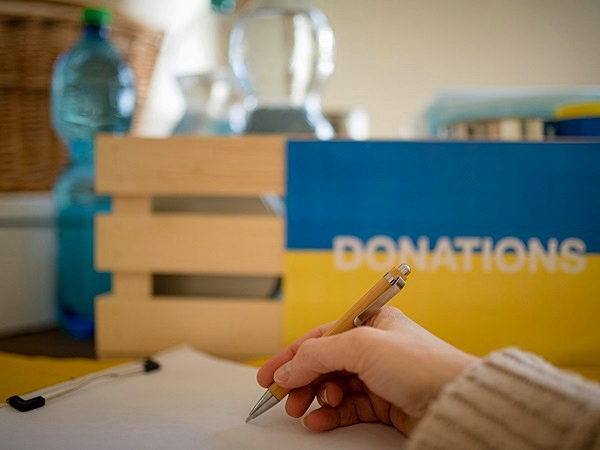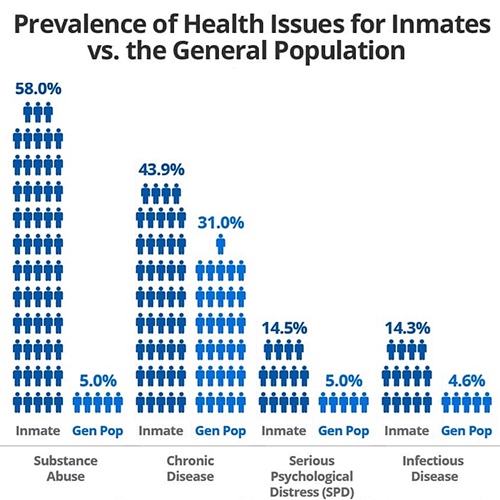Ways Jail Time Can Negatively Affect a Person’s Health
Most people would be hard-pressed to come up with anything positive about being arrested. For most law-abiding citizens, being arrested is a traumatic experience with negative consequences that can reverberate for years. Among the worst aspects of spending time in jail are the health impacts—both physical and mental. Below, we examine how jail time can negatively affect health and wellbeing.
The Different Ways Jail Time Can Negatively Affect a Person’s Health
Jails are not designed for comfort or wellness. Many facilities, even newer ones like the Broomfield County Detention Center, can take a toll on a person’s physical and mental health. Here are some key ways jail time can harm one’s health:
Poor Ventilation and Close Proximity

Jails are breeding grounds for illnesses such as colds, flu, and respiratory diseases. The close proximity of inmates, combined with inadequate ventilation systems, creates ideal conditions for diseases to spread. Older facilities, in particular, often lack modern HVAC systems, leading to high temperatures and moisture levels, further exacerbating the spread of infectious diseases.
New inmates frequently bring contagious conditions, and with limited access to personal hygiene products and medical care, these illnesses can run rampant. The risk of contracting a communicable disease in jail is significantly higher than in the general population.
“One study estimates that 39-43 percent of all inmates have at least one chronic condition. With few exceptions, the prevalence of almost all chronic conditions is higher among both prison and jail inmates than in the general population.”
—National Academies of Sciences
Stress-Related Illness
Unless you’re a hardened criminal to whom spending weeks in jail is no big deal, in other words – if you’re a normal person – spending any more than a few hours in jail can be extremely stressful. The freedoms you know and cherish have been taken from you, maybe for the first time in your life.
Dealing with any one of these issues is enough to keep someone up at night. But when these kinds of pressures and more are all brought to bear on you simultaneously it can cause a rash of negative side effects, with some of them potentially serious.
This stress may increase your susceptibility to certain physical and mental health problems, including:
- Severe headaches
- Chest pain
- Insomnia
- Depression
- Fatigue
- Anxiety
- Irritability
Such stress can strain relationships with loved ones, attorneys, employers, and bail bond agents, compounding the emotional toll.
Table: Common Illnesses in Jail
| Illness | Prevalence Among Jail Inmates | Prevalence in General Population |
|---|---|---|
| Hepatitis C | 18% | 1% |
| Tuberculosis | 5% | 0.1% |
| HIV/AIDS | 1.3% | 0.3% |
| Mental Health Disorders | 44% | 18.3% |
| Substance Use Disorders | 58% | 9% |
| Asthma | 20% | 8% |
Sources: U.S. Bureau of Justice, CDC
Mental Health Issues in Jail
One of the most concerning issues in the jail system is the prevalence of mental health problems among inmates. According to data from the Bureau of Justice Statistics, about 37% of state and federal prisoners and 44% of jail inmates have been diagnosed with a mental health disorder, compared to just 18.3% of adults in the general population. Common conditions include depression, bipolar disorder, and schizophrenia.
Many of these individuals do not receive adequate treatment while incarcerated, which can exacerbate their condition and lead to further complications, including self-harm or violent outbursts. Additionally, the stress and trauma of the jail environment can trigger or worsen mental health issues, even for those without a prior diagnosis.
“Rates of mental illness are much higher among incarcerated populations as compared to the general population. Of prison and jail inmates, 44 percent have been told in the past by a mental health professional that they have a mental health disorder.”
—National Institute of Health
Damage to a Person’s Sense of Self
Being arrested and jailed can significantly impact a person’s self-worth and reputation. Someone with a stable job, a family, and a good reputation may see all of that threatened. Arrests—even when unfounded—can lead to job loss, strained relationships, and bullying or ostracization of their children.
This loss of reputation and self-worth can spiral into emotional despair, financial instability, and long-term psychological trauma, even if the person is ultimately acquitted.

Physical Assault
Physical assaults in jails occur with disturbing frequency. Thousands of individuals experience violence while awaiting trial or bail, ranging from minor scuffles to severe attacks causing long-term damage like chronic pain, neurological issues, or PTSD. Sexual assaults, while less common in jail than in prison, still occur far too often.
These assaults range from relatively minor to extremely serious. And while sexual assaults are not as common in jail as they are in prison, they still happen in the jail setting far too often. Depending on the seriousness of the assault the individual may be left with long-term health problems including neurological damage, chronic pain and PTSD. Some people turn to alcohol or drugs to try and forget their experiences.
What is PTSD?
Learn more about PTSD in the following video:
As an experienced bail bond company we’ve seen the damage such altercations can cause individuals, which is one reason we would never try to bury this issue under the rug. To be sure, not everyone who ends up in jail will be assaulted, but it does happen and pretending it doesn’t will not help anyone.
Ways to Support Inmate Health
Improving the health and wellbeing of incarcerated individuals is not just a responsibility of the correctional system; everyday citizens can also play a role. Below are some actionable ways you can help:

- Advocate for Policy Change: Support legislation that ensures better healthcare, mental health services, and rehabilitation programs for inmates. Advocacy can include writing to local representatives or signing petitions.
- Volunteer or Donate: Many nonprofit organizations work to improve the health and wellbeing of incarcerated individuals. Volunteering your time or donating resources can help these groups provide essential services.
- Educate Yourself and Others: Raising awareness about the health challenges faced by inmates can help reduce stigma and encourage societal support for prison reform.
- Support Reentry Programs: When individuals are released from jail, reentry programs help them access healthcare, housing, and employment. These services are crucial for maintaining their health and reducing recidivism.
- Promote Preventive Measures: Encourage measures that reduce incarceration rates, such as community-based treatment programs for mental health and substance use disorders.
- Donate Health Supplies: Items like hygiene products, masks, and personal care kits can improve inmates’ quality of life and reduce the spread of illness.
By taking these steps, you can contribute to a more humane and health-conscious justice system that prioritizes the wellbeing of all individuals.
Keep in mind we’re not saying these types of negative effects will happen to someone who spends two hours in jail before being released thanks to the efforts of the bail company. But longer stays in jail do regularly occur and when they do they can have serious impacts on a person’s physical, mental and emotional health.
Can’t Afford Bail? Call Our Broomfield Bail Agents
Jails do a vital job in helping to keep dangerous individuals off the street. But they are not designed to be health clubs and they can, in fact, cause a variety of health issues ranging from minor to life-threatening. The best way to avoid these dangers is to stay out of jail. But if, for whatever reason, you find yourself in jail in Broomfield your first call should be to Urban Bail Company. We’re the bonding company that provides affordable 24-hour bail bonds that will ensure you do not spend one more minute than necessary behind bars so that you are not exposed to one of the many hazards lurking in jails today.


